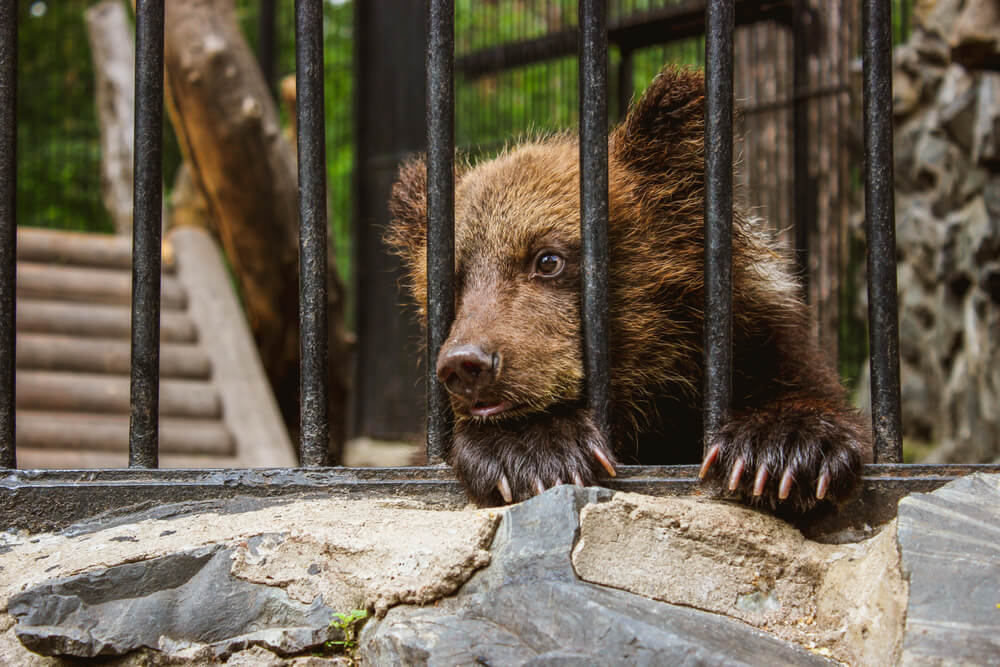Analysing circuses, zoos, and aquariums while discovering alternative approaches for a more compassionate future. Explore the ethical implications of animals in entertainment.
In the world of entertainment, there is a long-standing tradition of including animals as attractions in circuses, zoos, and aquariums. However, as our society becomes increasingly aware of the ethical implications surrounding animal welfare, it is crucial to analyse the ethical considerations associated with these practices. This article aims to delve into the complexities of animal ethics in entertainment and explore alternative approaches that prioritise the well-being and dignity of our fellow creatures.
The Ethical Quandary
Circuses have captivated audiences for centuries with their dazzling displays of acrobatics, magic, and animal performances. Yet, the use of animals in circuses has raised significant ethical concerns. Many argue that the unnatural living conditions, rigorous training methods, and confinement of animals in small spaces are detrimental to their physical and psychological well-being. The ethical question arises: Is it justifiable to exploit animals for the sake of human entertainment?
Similarly, zoos and aquariums have faced scrutiny due to the captivity of wild animals. While they serve educational purposes and conservation efforts, concerns about limited habitats, restricted movement, and the potential for boredom and stress have challenged the morality of these institutions. Striking a balance between education, conservation, and animal welfare becomes imperative in addressing the ethical considerations surrounding zoos and aquariums.
Exploring Alternatives
As society grapples with the ethical concerns related to animal exploitation, several alternative forms of animal entertainment are emerging. These alternatives aim to provide interactive experiences while prioritising the well-being of animals.

Wildlife Sanctuaries:
Wildlife sanctuaries offer a refuge for animals rescued from various forms of captivity. Unlike zoos and circuses, sanctuaries focus on providing animals with large, natural habitats and prioritise their welfare over entertainment. Visitors can observe animals in a more natural and non-exploitative setting, fostering education and empathy for wildlife.
Educational Programs:
Shifting the focus from entertainment to education can help raise awareness about animals and their conservation needs. Programs that emphasise scientific research, ecological understanding, and the importance of conservation efforts can engage and captivate audiences while respecting the animals' well-being.
Virtual Reality Experiences:
Technological advancements have paved the way for immersive virtual reality experiences that offer realistic encounters with animals without causing harm or confinement. These experiences allow individuals to explore diverse habitats, observe animals in their natural settings, and learn about their behaviours, all while fostering empathy and understanding.
Animal-Assisted Therapy:
Another alternative to traditional animal entertainment is the practice of animal-assisted therapy. This therapeutic approach utilises trained animals to help improve the physical, emotional, and social well-being of individuals in need. By emphasizing the mutual benefits and the human-animal bond, this form of interaction demonstrates a more ethical and compassionate approach.
Promoting Animal Welfare
To ensure the ethical treatment of animals in entertainment, it is essential to undertake several crucial steps. These steps can progressively establish a framework that prioritises animal welfare while promoting responsible and compassionate practices within the entertainment industry. Some potential steps:

Strengthening Legislation:
Governments and regulatory bodies should establish and enforce comprehensive animal welfare laws that prohibit exploitative practices, promote natural habitats, and prioritise the well-being of animals. These laws should be regularly reviewed and updated to reflect evolving societal values.
Education and Awareness:
Encouraging public awareness campaigns and educational initiatives can enlighten individuals about the ethical implications of animal entertainment and the alternatives available. By fostering empathy and understanding, we can promote a shift towards more ethical choices.
Support Conservation Efforts:
Allocating resources and support to conservation programs can help protect the habitats and natural environments of animals, reducing the need for captivity and exploitation. This includes efforts to combat illegal wildlife trade and habitat destruction.
Collaboration and Innovation:
Collaboration and innovation are key components in reshaping the landscape of animal entertainment towards more ethical practices. By fostering collaboration between scientists, conservationists, and entertainment industries, we can harness collective expertise and creativity to develop new approaches that prioritise animal welfare.
To conclude, the ethical considerations surrounding animals in entertainment demand our attention and action. By strengthening legislation, promoting education and awareness, supporting ethical alternatives, and encouraging transparency and accountability, we can create a more compassionate and responsible approach to animal entertainment. It is our collective responsibility to prioritise animal welfare, ensuring that the entertainment we enjoy does not come at the expense of the dignity and well-being of our fellow creatures. By embracing these steps, we can pave the way for a future where entertainment and animal ethics coexist harmoniously.